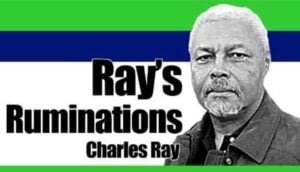
The annual World Poetry Day celebration observed on March 21 always brings sweet memories on how words put together in lines and stanzas have touched and influenced our hearts and soul through the years.
Underscoring the significance of World Poetry Day, UNESCO, which spearheads the observance, said that “poetry speaks to our common humanity and our shared values, transforming the simplest of poems into a powerful catalyst for dialogue and peace.”
WPD celebrates one of humanity’s most treasured forms of cultural and linguistic expression and identity UNESCO added.
Started about 25 years ago, the WPD observance aims to support linguistic diversity through poetic expression and increasing the opportunity for endangered languages to be heard.
“World Poetry Day is the occasion to honor poets, revive oral traditions of poetry recitals, promote the reading, writing and teaching of poetry, foster the convergence between poetry and other arts such as theatre, dance, music and painting, and raise the visibility of poetry in the media,” UNESCO further said.
***
My own romance with poetry – which led to penning myself lines and verses that saw print – started in the grade school when I delivered in a class recitation the poem first heard from Sunday school, “All Things Bright and Beautiful”.
I later learned that the poem – which has appealed to many because of its message infused into its smooth rhyme and rhythm, was written in 1848 by Irish writer Cecil Alexander Frances.
The writer composed it to “remind Christians about the power behind all the beautiful, natural things in the world.”
The stanzas – the first two below – still ring vividly in mind:
All things bright and beautiful,
All creatures great and small,
All things wise and wonderful,
The Lord God made them all.
Each little flower that opens,
Each little bird that sings,
He made their glowing colours,
He made their tiny wings…
In high school, my literature classes sustained my interest in poetry as we were introduced to the works of, among others, American poets and writers Henry Wardsworth Longfellow and Alfred Joyce Kilmer.
Longfellow’s “A Psalm of Life”, written in the late 1830s, has gained wide appreciation because people identify themselves with the existential thoughts expressed in the lines:
Tell me not, in mournful numbers,
Life is but an empty dream!—
For the soul is dead that slumbers,
And things are not what they seem.
Life is real! Life is earnest!
And the grave is not its goal;
Dust thou art, to dust returnest,
Was not spoken of the soul…
More than 120 years ago, Kilmer wrote, “Trees”, a poem that has remained in the hearts, especially of nature lovers and conservationists. Again, the lines attest to the power of God, our Creator.
I think that I shall never see
A poem lovely as a tree.
A tree whose hungry mouth is prest
Against the earth’s sweet flowing breast;
A tree that looks at God all day,
And lifts her leafy arms to pray;
A tree that may in summer wear
A nest of robins in her hair;
Upon whose bosom snow has lain;
Who intimately lives with rain.
Poems are made by fools like me,
But only God can make a tree.
Growing up in southern Negros, where the coast is long and pristine and the ocean often clear and blue, I cherish Englishman John Masefield’s “Sea Fever”. The poem has been etched in the stream of my consciousness, particularly when life in the city becomes stifling and too confined to the point of being muggy.
The poem, written in 1902, reflects a sea lover’s longing for the familiar wide and open space:
I must go down to the seas again, to the lonely sea and the sky,
And all I ask is a tall ship and a star to steer her by;
And the wheel’s kick and the wind’s song and the white sail’s shaking,
And a grey mist on the sea’s face, and a grey dawn breaking.
***
The development and forms of poetry writing may have been at pace with the growth of societies, yet, despite the progress, the lines of yesteryears have retained their engagingness apparently because they are messages written straight from the heart.
Whatever value we connect with poetry – from enhancing our self-awareness, as a form of self-expression or, perhaps, therapy, a means to enhance our life’s perspectives, slow us down or push us to meet challenges, may it continue to inspire our creative thought and offer us wisdom and pragmatism and make us inter-connected for, after all, we are living together in this wonderful world God has made.
***
May my teaching drop as the rain, my speech distill as the dew, like gentle rain upon the tender grass, and like showers upon the herb. (Deuteronomy 32:2) | NWI




